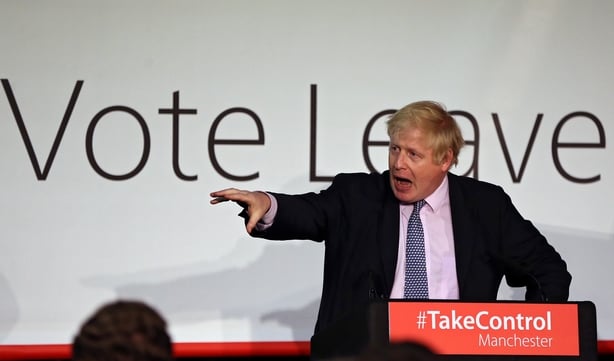Britain could have to wait a decade for a free trade deal with the United States if it votes to leave the European Union, US President Barack Obama has said.
Mr Obama has spent the last three days in London urging Britons to stay in the EU as the British public prepares to vote on 23 June on whether to remain a member of the bloc.
He played on the two countries' close historic ties to warn that from a US perspective, leaving the EU would be a mistake.
"It could be five years from now, ten years from now before we're actually able to get something done," Mr Obama told the BBC when asked about the prospect of a post-Brexit trade deal.
That added to his warning on Friday that Britain would find itself at "the back of the queue" for a new trade deal with the United States if it departed the EU.
Mr Obama's decision to intervene in the EU debate has angered the Eurosceptic Out campaign, which has argued that Britain could easily negotiate international deals and get better terms outside the 28-nation EU.
Johnson critical of Obama's comments
His high-profile warning built on other recent major interventions highlighting the negative economic impact of an exit.
Polls show that a largely deadlocked public opinion may be starting to shift in favour of the In campaign.
Mr Obama's image, one of the most recognisable in global politics, was quickly added to pro-EU campaign posts online under the slogan "Obama thinks the UK is Stronger In Europe".
Hillary Clinton, a fellow US Democrat and the frontrunner to become the party's candidate to succeed Mr Obama as president, also wants Britain to stay inside the EU, her campaign team said yesterday.
London Mayor Boris Johnson, de facto head of the Out campaign, heavily criticised Mr Obama's comments on trade.

"It is ridiculous to warn that the UK will be at the back of the queue for a free trade deal," he told the Mail on Sunday.
"The UK has never been able to do a free trade deal with the US in the last 43 years - because we are in the EU!"
Answering such criticism, Mr Obama said that his involvement had been justified because of the two countries' longstanding special relationship, and that he hoped he had been able to persuade some British voters.
"The UK would not be able to negotiate something with the United States faster than the EU," he said.
"We wouldn't abandon our efforts to negotiate a trade deal with our largest trading partner, the European market."
The US president left Britain today bound for Germany, where he will hold talks with German Chancellor Angela Merkel, one of his closest allies in dealing with a shaky global economy and security crises in the Middle East and Ukraine.

